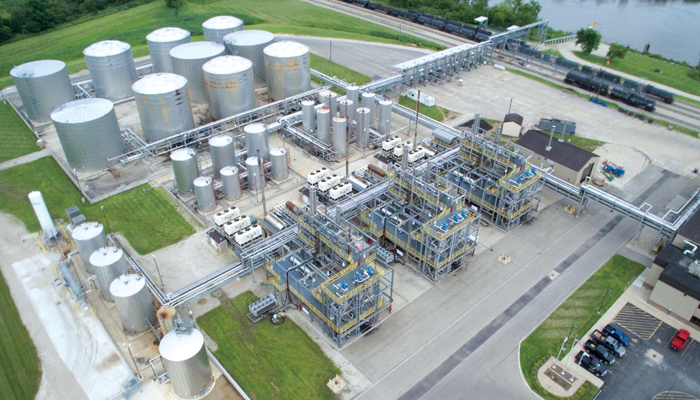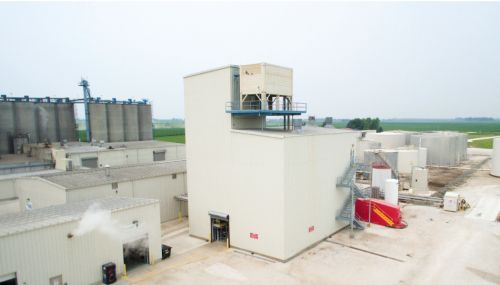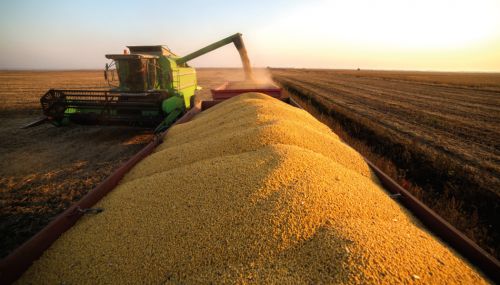All
Biofuel Blenders Seek Market Opportunities
by Steve Klein, Senior Manager, Marketing, Renewable Energy Group

Sorting through the alphabet soup of the Renewable Fuel Standard (RFS), with its Renewable Identification Numbers (RINs – more on these below) and small-refiner exemptions (SREs), might seem like a tall order for the average home heating oil provider. However, if the Providence Summit and other recent events tell us anything, it’s that the heating oil industry is finally “all-in” on biofuel blending.
Despite the news and noise coming out of Washington, DC, Renewable Energy Group (REG) remains North America’s largest biodiesel producer. As such, we are here to help our current and future blending partners identify and capture new and emerging market opportunities. Here are some of the ways we can help your business move fuel forward.
Overcoming Supply Challenges
The one question that seems to be on every heating oil dealer’s mind when it comes to biofuel is: “Where do I find it?” Questions about the Northeast’s fuel supply precede the biofuels industry, but biodiesel’s increasing presence in the marketplace is strengthening the region’s overall supply.
So, if the question is “where,” the answer is obvious: anywhere ASTM-approved, RFS-eligible biodiesel is produced, blended and/or sold for distribution.
For our business, REG maintains a network of state-of-the-art biorefineries and 16 fuel terminals in the greater U.S. Northeast and Mid-Atlantic regions. Our growing ranks now include the full-service Broco Oil terminal at 168 Hale Street in Haverhill, Massachusetts. You’ll find more on this latest addition to the REG network in the next issue. In the meantime, the easiest way to find the nearest REG terminal is to visit regi.com and choose “Distribution Facilities” under the Find Fuel tab.
Ensuring Fuel Quality
Note how we made sure to include the phrases “ASTM-approved” and “RFS-eligible” in the previous section. As is the case with conventional diesel and heating oil, fuel quality is an important consideration when it comes to storing and selling biodiesel and blended Bioheat® fuel.
In addition to our growing supply network, REG maintains an in-house Technical Services Team with a testing laboratory dedicated to measuring and ensuring fuel quality. Our laboratory testing, available to all as a free service, includes:
- Cold Soak Filtration, Cold Soak Filter Blocking Tendency, Cold Filter Plugging Point (CFPP) and Cloud Point testing to determine cold weather properties
- Testing for most of the ASTM biodiesel and petroleum diesel parameters
- Fuel sample testing as well as filter analysis and other non-fuel sample tests to help troubleshoot field issues
- Technical advice on storing, handling and blending fuels
- Technical guidance on fuel properties customers should consider for their specific operations
Perhaps most importantly, all REG products undergo extensive in-house testing before they reach our customers. As a result, REG-9000® biodiesel meets — and in most cases exceeds — the standards set forth in the ASTM D6751 specification for biodiesel. REG biorefineries also participate in the BQ-9000® National Biodiesel Accreditation Program. Beyond that, REG is a pioneer in the practice known as feedstock flexibility, and therefore capable of utilizing many different supply lines to achieve the specific fuel qualities and properties your business demands. This can be especially important when it comes to compliance, which brings us to the next topic.
Clean-Energy Incentives
During a presentation at the 2019 HEAT Show, REG Director of Government Affairs Lindsay Fitzgerald said, “When you have one gallon of biodiesel, it’s more than just a gallon of biodiesel — there’s compliance associated with it as well.” Lindsay was speaking not only to the 1.5 D4 RINs generated with each gallon of biodiesel production, but also to a number of “pocket markets” that have popped up in states and municipalities that mandate or incentivize biodiesel blending.
For example, the Massachusetts Alternative Energy Portfolio Standard (APS) provides financial incentives for all sales of Bioheat® fuel containing eligible B10 or higher biodiesel (note: currently soybean-based biodiesel is ineligible). Similar programs have since been proposed in Connecticut and Rhode Island.
Additionally, biodiesel blending mandates are already on the books in Rhode Island, Pennsylvania and downstate New York — the largest heating oil market in the U.S. As these states and others move to meet their own emissions reduction targets — and as the Northeast heating oil industry does the same — demand for biodiesel will continue to increase, as will the fuel’s value in terms of related clean-energy incentives. Again, REG stands ready to help its blending partners navigate the alphabet soup of mandates, incentive programs, and standards in order to achieve the best possible value and returns.
For more information, visit regi.com or call me directly at 515-239-8364.
Related Posts
 Why Quality Matters in Your Biofuel Blends
Why Quality Matters in Your Biofuel Blends
Posted on June 25, 2025
 Incorporating Higher Blends of Biofuels
Incorporating Higher Blends of Biofuels
Posted on May 14, 2025
 NORA Programs at Eastern Energy Expo
NORA Programs at Eastern Energy Expo
Posted on May 13, 2025
 March Short-Term Energy Outlook
March Short-Term Energy Outlook
Posted on April 28, 2025
Enter your email to receive important news and article updates.
